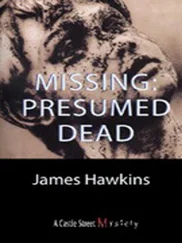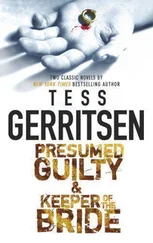‘How do you mean?’
‘Maybe I had better tell you the whole story,’ she said, leaning back in her chair.
‘I wish you would,’ David said, reaching into his jacket pocket for his notebook and pen.
Just then, her husband came back into the parlor carrying a tray with a coffeepot, milk jug and sugar bowl. ‘What have you been telling him, Mama?’ the old man asked. ‘You promised not to start all that crazy talk again.’
‘It is not crazy talk,’ Frau Schutz snapped. ‘I know what I know, and it is my responsibility to tell Mr Wiseman the truth.’
The old man shook his head in resignation and said, ‘I will be in the garden if you want me. I can not stand to listen to this story again. Please excuse me Mr Wiseman.’
When he’d gone, the old woman poured the coffee then started speaking. ‘When the Baron died, oh… thirty years ago now, the Baroness was devastated. The Baron had been a highly respectable banker, respectable and boring. They had never traveled very far, they had very few friends and no social life at all. They had been good companions to each other and were growing old and fat together, but when he went, the Baroness really did not know what to do with herself. For the first few months we were all very worried about her. She would just wander around the Schloss or sit doing nothing. Then there was a change.
‘Suddenly, it was if she had decided to make a new life for herself. She started to take regular exercise and she asked me to prepare more salad and vegetable dishes and to cut down on potatoes and pastries. Within six months she was riding the rack-railway from Vitznau to the top of Mt Rigi and walking back down to Weggis at least twice a week, and had lost twenty kilos in weight.
‘The doctor was very pleased with her, he had been trying to get her to lose weight for some time. When she had her regular check up, he told her that since she had lost all that weight, her heart was now good for another thirty years. That must have given her a new lease of life because suddenly she gave away all her clothes and had a complete new, fashionable wardrobe made. She also had her hair remodeled into a modern style.
‘After that, we didn’t see very much of her for a time. She went travelling around the world, and by the time she got back, she had made so many friends that she was always being invited away for weekends and short holidays. She took to spending a lot of time on the French Riviera and started gambling in the casinos. Although the Baron had left her well provided for with a regular income, she was spending more than the investments were earning and so to get extra money she started selling some of the antique furniture in the Schloss.
‘She found a furniture dealer in Lucerne who would buy the antiques and supply her with identical replacement reproduction pieces. That way she found she could raise a lot of money but still keep up appearances in front of her friends. When all the furniture had been sold and replaced, she started selling the pictures, again to the same dealer who would have them copied so that she always had a replacement to hang. Within five years, she had gambled away nearly everything of value in the Schloss, all she had left were her jewels. That was when she met Sir Ross Webley, while she was away on one of her gambling trips to France.’ She spat his name out with disgust.
‘I remember the first time I saw him,’ she continued. ‘The Baroness had invited him and a few other friends for the weekend. He was very young, less than half the Baroness’s age, and oily, you know, like a gigolo. At the end of the weekend, the other guests left, but he stayed. The Baroness took him walking in the hills and they went swimming and sailing on the lake. He followed her around like a puppy and she acted like a schoolgirl, making a complete fool of herself. One night she had a little too much to drink and confided to her personal maid that Webley was very rich, and that if she could marry him, it would mean an end to her financial worries.
‘To the rest of us staff, it looked the other way around. If he was as wealthy as he claimed, tell me, what would he want with a plain, middle-aged woman like the Baroness? She obviously thought that he loved her, but that is not how it seemed to me. Every time he was alone, I would see him walking around the rooms, looking at the furniture and paintings, almost as if he was taking inventory.
‘Anyway, after a month, the Baroness announced that she was going on a short holiday to England to stay on his estate. That was the last time we ever saw her.’ The old woman paused to wipe her eyes.
David waited patiently for a moment, then asked, ‘What happened next?’
‘About a week later, we received a telegram saying the Baroness was to be married in England and instructing us to pack up all her clothes and jewels and have them sent to Webley’s estate by airfreight. We did as we were told, then we heard nothing more until a few weeks after that when Webley and the Baroness’s lawyer came to the Schloss. They called all the staff together and told us that the Baroness had died shortly after the wedding from a heart attack.’
‘Just like that?’ David asked.
‘Yes, just like that. Naturally, everyone was very upset, especially when the lawyer told us that the Baroness had made a new will leaving everything to her husband. You see, many of us had been at the Schloss since the Baron and Baroness were first married, and it would have been normal for the long serving staff to have received something.’
‘This new will,’ David asked, ‘when was it made?’
‘I never saw it, but when I went to see her lawyer later, he told me it had been made in England between the time of the marriage and the time of the Baroness’s death. He said that Webley’s lawyers had made it and that Webley had brought it with him, along with a copy of the death certificate.’
‘So what happened after that?’ David asked.
‘After the lawyer had given us the news, he told us that Webley was now our master and asked that we all co-operate with him, then he left. Webley waited until he had gone, then stood up in front of us all and told us that he was selling the Schloss and that we were all on one week’s notice.’
‘One week! After over twenty five years of service?’ David asked with disbelief.
‘One week. That is all he gave us, no bonus, no thank you, nothing. Carl, that’s my husband, and me just walked out and never went back. We heard later that Webley instructed an auction house in Zurich to sell everything, including the Schloss, then he went home and we never saw him again.
‘The only consolation for us was that from what we heard, he made hardly any money out of the sale. All the antiques and pictures were worthless reproductions and the Schloss itself was in need of much serious repair work. The Baroness had not spent a centime on maintaining the old building since the Baron had died, so when it was finally sold to developers, it was for very little money.’
‘What about all the Baroness’s jewels?’ David asked. ‘They must have been worth a small fortune.’
‘We think he must have sold them too.’
‘You’re probably right.’ David thought for a moment then asked, ‘You say you went to see the Baroness’s lawyer afterwards? Why was that?’
‘To tell him that something was not right about the Baroness’s death. It was all too convenient for her new husband.’
‘What did he say?’
‘He did not believe me. He showed me the copy of the death certificate, and that clearly said she had died from a heart attack. He said it was all just very unfortunate and even suggested that it was the Baroness’s own fault for marrying a young man, which I thought was disgusting. I asked him if he had checked with the lawyers in England to make sure the new will was genuine. He told me not to teach him his business, and besides, he had no reason to doubt the word of Sir Ross Webley, who, he said, was a fine gentleman.’
Читать дальше












